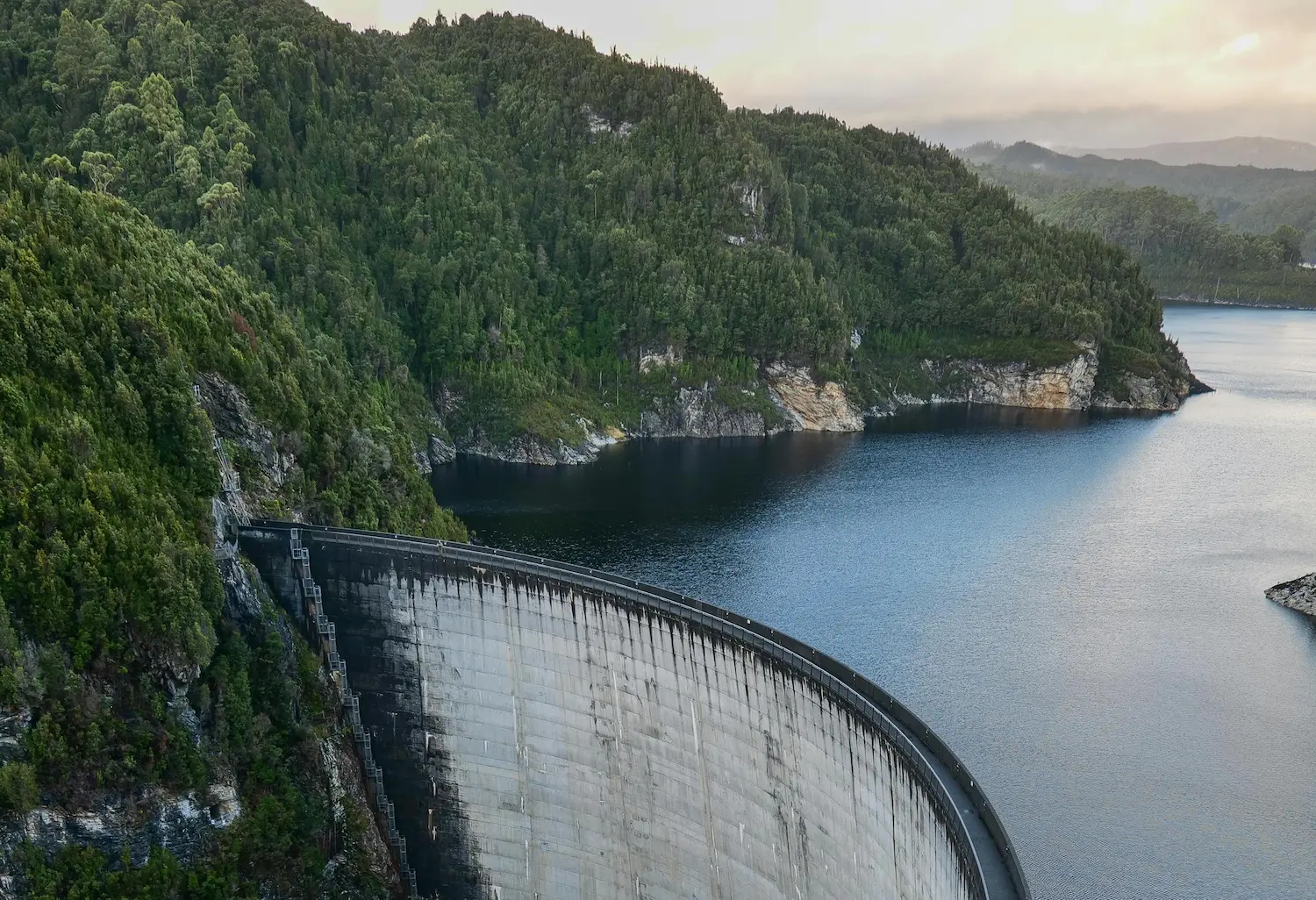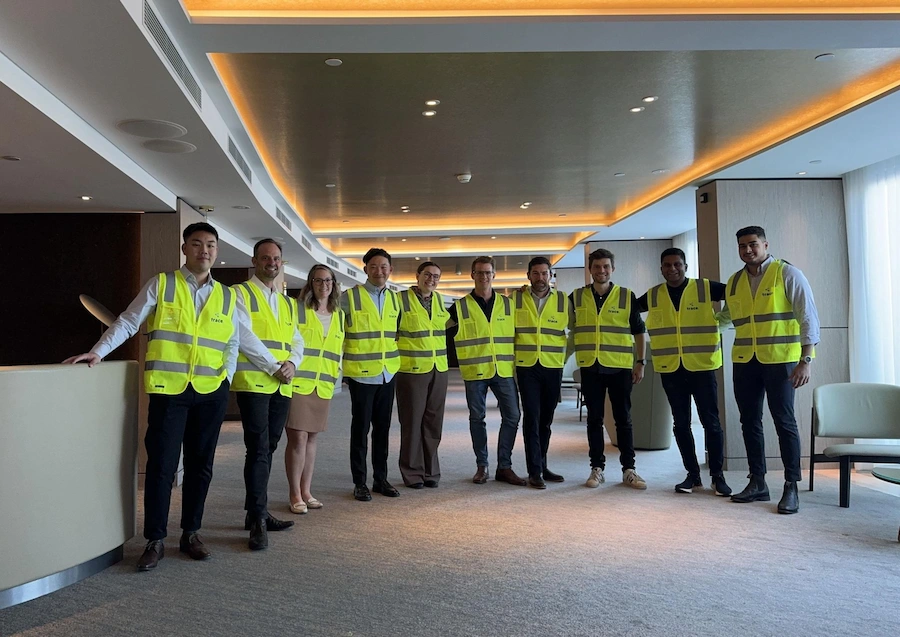Ready to turn insight into action?
We help organisations transform ideas into measurable results with strategies that work in the real world. Let’s talk about how we can solve your most complex supply chain challenges.

Unlocking Energy Reduction Opportunities for Supply Chain Assets and Infrastructure
As global industries increasingly prioritise sustainability and cost efficiency, energy management within supply chains has become a critical focus area. Reducing energy consumption across supply chain assets and infrastructure not only lowers operational costs but also contributes to environmental stewardship. This strategic shift is particularly important as companies strive to meet stringent regulatory requirements and respond to growing consumer demand for sustainable practices.
This article explores a three-step approach to energy reduction in supply chain assets and infrastructure: Energy Risk Identification, Operational Energy Optimisation, and Transforming Energy Production and Use. By following these steps, companies can significantly reduce their energy footprint, enhance energy security, and ultimately achieve greater self-reliance. Additionally, we will discuss how Trace Consultants can support organisations in developing robust business cases for these initiatives, ensuring that energy reduction strategies align with broader business goals.
1. Energy Risk Identification: Assessing and Prioritising Energy Risks
The first step in reducing energy consumption within supply chain assets and infrastructure is to conduct a comprehensive energy risk identification process. This involves assessing the entire portfolio of supply chain operations—ranging from manufacturing facilities to warehouses and distribution centres—to identify areas where energy costs are high and where security risks exist.
By evaluating energy usage patterns, companies can pinpoint inefficiencies and areas where energy consumption is unnecessarily high. Additionally, identifying security risks related to energy supply—such as reliance on unstable energy sources or vulnerability to energy price fluctuations—enables companies to prioritise sites that require immediate attention.
Outcome: The primary outcome of energy risk identification is the development of a prioritised list of sites and operations where energy costs and security risks are most significant. This list serves as the foundation for targeted energy reduction initiatives and helps focus resources where they are most needed.
How Trace Consultants Can Help:
Trace Consultants provides expert services in energy risk identification, offering comprehensive assessments that highlight key areas of energy inefficiency and vulnerability. More importantly, Trace Consultants supports the design and development of business cases that make a compelling argument for investment in energy reduction initiatives. By combining advanced analytics with a strategic approach to business case development, Trace Consultants ensures that energy reduction efforts are aligned with organisational priorities and deliver tangible business benefits.
2. Operational Energy Optimisation: Reducing Consumption and Enhancing Security
Once energy risks have been identified, the next step is operational energy optimisation. This stage focuses on reducing energy consumption across supply chain operations and enhancing overall energy security. Key strategies in this stage include implementing energy-efficient technologies, optimising equipment and process operations, and improving facility management practices.
For instance, upgrading to energy-efficient lighting, heating, and cooling systems can lead to significant reductions in energy usage. Similarly, optimising the operation of machinery and equipment through predictive maintenance and energy management systems can prevent energy waste and reduce costs. Additionally, improving insulation and using energy-efficient materials in warehouses and manufacturing facilities can further reduce energy demand.
Outcome: The outcome of operational energy optimisation is a marked reduction in energy consumption across supply chain assets and infrastructure. This not only lowers operational costs but also strengthens the organisation’s energy security by reducing dependence on external energy supplies.
How Trace Consultants Can Help:
Trace Consultants offers tailored solutions for operational energy optimisation, helping companies implement the latest energy-efficient technologies and best practices. Beyond technical implementation, Trace Consultants plays a critical role in developing business cases that justify the investment in these energy optimisation measures. By providing detailed cost-benefit analyses and aligning the energy reduction strategy with the company’s broader financial and operational goals, Trace Consultants ensures that these initiatives are both feasible and impactful.
3. Transforming Energy Production and Use: Creating Energy Self-Reliance
The final step in the energy reduction journey is transforming energy production and use to create greater self-reliance. This involves shifting from traditional energy sources to renewable and sustainable energy options, such as solar, wind, or geothermal energy. By generating their own energy, companies can reduce their dependence on external suppliers, stabilise energy costs, and contribute to environmental sustainability.
Moreover, adopting renewable energy technologies and integrating them into supply chain operations can position companies as leaders in sustainability, enhancing their brand reputation and meeting the expectations of environmentally conscious consumers. Additionally, energy storage solutions, such as battery systems, can be implemented to manage energy supply and demand more effectively, ensuring a consistent and reliable energy supply.
Outcome: The outcome of transforming energy production and use is a self-reliant energy system that meets the organisation’s energy needs while minimising environmental impact. This transformation not only secures energy supply but also aligns with broader corporate sustainability goals, driving long-term value for the business.
How Trace Consultants Can Help:
Trace Consultants provides expert guidance in transforming energy production and use, helping companies transition to renewable energy sources and achieve energy self-reliance. A key component of this support is the development of comprehensive business cases that articulate the long-term benefits and financial returns of investing in renewable energy technologies. Trace Consultants ensures that these business cases are robust, aligning the proposed energy transformations with the organisation’s strategic objectives and securing the necessary buy-in from stakeholders.
Achieving Energy Efficiency and Sustainability with Trace Consultants
Reducing energy consumption across supply chain assets and infrastructure is a critical step toward achieving greater sustainability and cost efficiency. By following a structured approach that includes energy risk identification, operational energy optimisation, and transforming energy production and use, companies can significantly reduce their energy footprint and enhance their energy security.
Trace Consultants, with its extensive experience in energy management and sustainability, offers the guidance and support needed to develop strong business cases for these energy initiatives. Whether your organisation is looking to identify energy risks, optimise energy consumption, or transition to renewable energy sources, Trace Consultants can help you achieve your energy reduction goals while ensuring alignment with broader business objectives.
For more information on how Trace Consultants can assist your organisation in reducing energy consumption and enhancing sustainability within your supply chain, reach out to their team of experts today.
Contact us today, trace. your supply chain and procurement consulting partner.
Ready to turn insight into action?
We help organisations transform ideas into measurable results with strategies that work in the real world. Let’s talk about how we can solve your most complex supply chain challenges.









